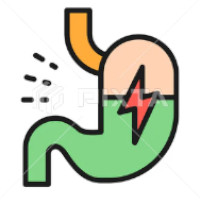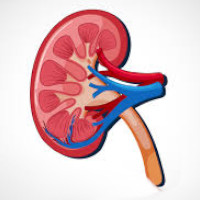Hi, Recently I heard that we shouldn’t eat too many times a day, as every time our body organs, like Pancreatic, have to work to digest / release the insulin, so organs wouldn’t be able to take rest.
So far my understanding was instead of having large meals at one time, its better to east smaller meals in regular interval.
I am now confused which theory is right?
 AddictionAlcohol, Smoke, Drugs
AddictionAlcohol, Smoke, Drugs Body FitnessExercise, Yoga, Gym, Sports, Lifestyle, Strength, Obesity, Cardio, Weight
Body FitnessExercise, Yoga, Gym, Sports, Lifestyle, Strength, Obesity, Cardio, Weight Dental and OralCavities, gum disease, sensitivity, braces, Oral hygiene
Dental and OralCavities, gum disease, sensitivity, braces, Oral hygiene DepressionMood disorder, Sadness, Loss of interest, Lack of Confidence
DepressionMood disorder, Sadness, Loss of interest, Lack of Confidence DermatologySkin, Hair, Nails, Acne, Wrinkles, Scars, Moles, Anti-aging, pigmentation
DermatologySkin, Hair, Nails, Acne, Wrinkles, Scars, Moles, Anti-aging, pigmentation DiabetesMetabolic disorder, high blood sugar , pancreas
DiabetesMetabolic disorder, high blood sugar , pancreas DisabilityPhysical, Cognitive, Paralysis, Visual & Hearing Impairments, Speech
DisabilityPhysical, Cognitive, Paralysis, Visual & Hearing Impairments, Speech ENTEar, Nose, and Throat problems, Sinusitis, Tonsillitis, Hearing loss
ENTEar, Nose, and Throat problems, Sinusitis, Tonsillitis, Hearing loss Eye ProblemCataract, Conjunctivitis, Glaucoma , Vision, Glasses, Lenses, dryness
Eye ProblemCataract, Conjunctivitis, Glaucoma , Vision, Glasses, Lenses, dryness FeverFlu, Maleria, Measles, Chikenpox, Viral, Bacterial, COVID19, HMPV
FeverFlu, Maleria, Measles, Chikenpox, Viral, Bacterial, COVID19, HMPV General HealthInfections, Colds, Cough, Headaches, Injuries, Body pain, vaccination, Allergies
General HealthInfections, Colds, Cough, Headaches, Injuries, Body pain, vaccination, Allergies Heart IssuesHeart Attack, Failure, Blood Pressure, Hypertension, Chest Pain, Cholesterol
Heart IssuesHeart Attack, Failure, Blood Pressure, Hypertension, Chest Pain, Cholesterol Liver ProblemsFatty Liver, Hepatitis, Jaundice, Cirrhosis
Liver ProblemsFatty Liver, Hepatitis, Jaundice, Cirrhosis Lungs ProblemsAsthma, COPD, Pneumonia, TB, Bronchitis, Cough
Lungs ProblemsAsthma, COPD, Pneumonia, TB, Bronchitis, Cough Mental / PsychologicalAnxiety, Stress, Bipolar disorder, SAD, GAD, Addictions, Mood disorders
Mental / PsychologicalAnxiety, Stress, Bipolar disorder, SAD, GAD, Addictions, Mood disorders Neuro HealthBrain, Memory, Cognitive, Nervous System, Parkinson, Dementia, Alzheimer, Stroke
Neuro HealthBrain, Memory, Cognitive, Nervous System, Parkinson, Dementia, Alzheimer, Stroke Nutrition & DietVitamin, Protean, minerals, Immunity, Weakness, Diet, Anemia, Blood
Nutrition & DietVitamin, Protean, minerals, Immunity, Weakness, Diet, Anemia, Blood Orthopaedics / BoneArthritis, Fractures, Joints, Spinal, Postures, Herniated Discs, Spinal, Postures
Orthopaedics / BoneArthritis, Fractures, Joints, Spinal, Postures, Herniated Discs, Spinal, Postures PaediatricsChild Care, Behaviour, Mood Swings, Loneliness, Anger, Depression
PaediatricsChild Care, Behaviour, Mood Swings, Loneliness, Anger, Depression Rare Diease / Genetic ConditionMRKH
Rare Diease / Genetic ConditionMRKH Sleep IssuesInsomnia, Sleep Apnea, Excessive daytime sleep, Sleepwalking, Nightmares
Sleep IssuesInsomnia, Sleep Apnea, Excessive daytime sleep, Sleepwalking, Nightmares Stomach ProblemsIndigestion , Gastritis, IBS, Bloating, Constipation, Food Poisoning, Ulcers.
Stomach ProblemsIndigestion , Gastritis, IBS, Bloating, Constipation, Food Poisoning, Ulcers. StonesKidneys, Gallbladder, Pancreatic, Prostate
StonesKidneys, Gallbladder, Pancreatic, Prostate Thyroid DisordersHyperthyroidism or hypothyroidism.
Thyroid DisordersHyperthyroidism or hypothyroidism. Tumor / CancerBrest, Oral, Prostate, Blood Tissue, Brain, Skin, Chemo, Radiation
Tumor / CancerBrest, Oral, Prostate, Blood Tissue, Brain, Skin, Chemo, Radiation Urological HealthUrinary infections, Bladder issues, Prostate health, Kidney diseases
Urological HealthUrinary infections, Bladder issues, Prostate health, Kidney diseases Woman HealthWoman Care, Pregnancy, Childbirth, Menstrual health
Woman HealthWoman Care, Pregnancy, Childbirth, Menstrual health
 Support Us
Support Us
Contribute to making a difference through generosity and community support.
Donate Now Refer a Friend 113 Posts
113 Posts 159 Members
159 Members 27 Communities
27 Communities 231 Feedbacks
231 Feedbacks
Cure Together
Community based social health network where peers can connect, share, and evaluate health-related experiences, knowledge, resources, support, and needs, fostering a culture of care and collaboration.
You are not allowed to post comments on this article, but you can read existing comments.
Feedback Cancel Reply
Survey for the month
Search Members
You must be logged in to search members.
Community Ethiquettes

1-1 chat
Connect, Share and Cure Together.


 Addiction
Addiction Dental and Oral
Dental and Oral Depression
Depression Disability
Disability ENT
ENT Eye Problem
Eye Problem Fever
Fever General Health
General Health Heart Issues
Heart Issues Liver Problems
Liver Problems Lungs Problems
Lungs Problems Mental / Psychological
Mental / Psychological Neuro Health
Neuro Health Nutrition & Diet
Nutrition & Diet Orthopaedics / Bone
Orthopaedics / Bone Rare Diease / Genetic Condition
Rare Diease / Genetic Condition Sleep Issues
Sleep Issues Stomach Problems
Stomach Problems Stones
Stones Thyroid Disorders
Thyroid Disorders Tumor / Cancer
Tumor / Cancer Urological Health
Urological Health Woman Health
Woman Health

The debate about whether to consume large meals at one time or small meals many times a day has been ongoing for years. Let’s break down the pros and cons of each approach:
Large Meals at One Time
*Pros:*
1. *Convenience*: Eating fewer, larger meals can be more convenient for those with busy schedules.
2. *Social Benefits*: Sharing large meals with family and friends can foster social bonding and community.
3. *Hormonal Benefits*: Research suggests that eating larger meals can stimulate the release of cholecystokinin (CCK), a hormone that helps with satiety and weight management.
*Cons:*
1. *Blood Sugar Spikes*: Consuming large meals can cause significant spikes in blood sugar levels, potentially leading to insulin resistance and other health issues.
2. *Digestive Issues*: Large meals can put pressure on the digestive system, leading to discomfort, bloating, and indigestion.
3. *Weight Gain*: Eating large meals can lead to consuming more calories than needed, potentially resulting in weight gain.
Small Meals Many Times
*Pros:*
1. *Improved Digestion*: Eating smaller, more frequent meals can ease digestion and reduce symptoms of irritable bowel syndrome (IBS).
2. *Stable Energy Levels*: Consuming smaller meals throughout the day can help maintain stable energy levels and prevent energy crashes.
3. *Weight Management*: Eating smaller meals can lead to a reduction in overall calorie intake, potentially aiding in weight loss and management.
*Cons:*
1. *Increased Snacking*: Eating small meals frequently can lead to increased snacking, potentially resulting in consuming unhealthy or high-calorie foods.
2. *Difficulty in Social Situations*: Eating small meals frequently can make social eating situations challenging, potentially leading to feelings of isolation or frustration.
3. *Nutrient Imbalance*: Consuming small meals frequently can lead to an imbalance of essential nutrients, potentially resulting in deficiencies or health issues.
Ultimately, the best approach depends on individual needs, lifestyles, and preferences. Some people may thrive on eating smaller, more frequent meals, while others may prefer larger, less frequent meals.
Tips for a Balanced Approach
1. *Listen to Your Body*: Pay attention to your hunger and fullness cues, eating when you’re hungry and stopping when you’re satisfied.
2. *Eat Nutrient-Dense Foods*: Focus on consuming whole, nutrient-dense foods, including fruits, vegetables, whole grains, lean proteins, and healthy fats.
3. *Stay Hydrated*: Drink plenty of water throughout the day to stay hydrated and help control hunger.
4. *Be Mindful*: Eat slowly, savoring your food, and pay attention to your emotions and hunger levels.
By adopting a balanced and mindful approach to eating, you can find a rhythm that works best for your unique needs and lifestyle.